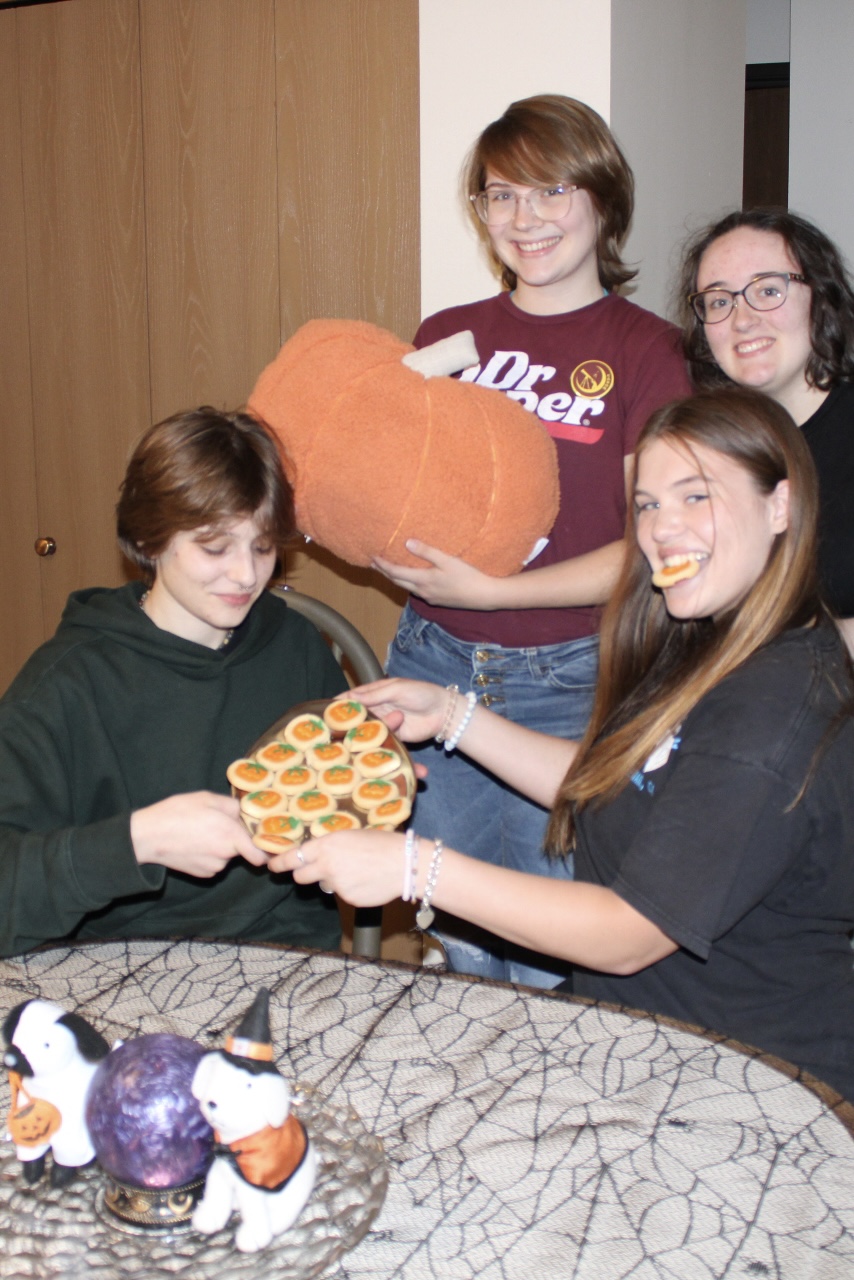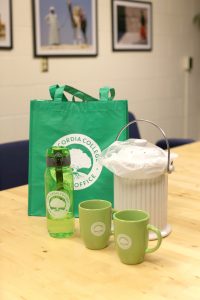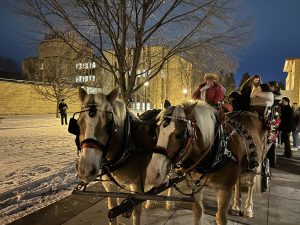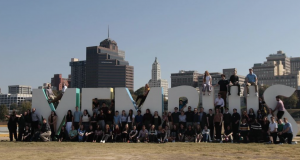Cobber Poet’s Society takes place of Poetry Slam Club
After attending a poetry open mic event on campus last spring, Megan Schindler, a sophomore at the time, contacted communications department professor Megan Orcholski and told her: “It’s time.”
Schindler believed it was time students at Concordia had a safe place on campus to express themselves through the art of poetry, thus The Cobber Poet’s Society was officially restored this year.
Schindler originally discovered what was then called The Poetry Slam Club when she was a freshman, only to find the organization had actually laid dormant since its founder, Steph Villella, graduated in 2011.
Schindler, currently a junior and Cobber Poet’s Society President, says she could tell there was a big demand for a poetic outlet on campus, and she wanted to “provide people a time and space to explore more of themselves through poetry whether that is through writing, analysis or just appreciating famous poems.”
Schindler decided to change the name from The Poetry Slam Club to The Cobber Poet’s Society because she did not want the sole focus of the group to be performance-based. She believes there is more to poetry than simply performing it.
Both Schindler and Orcholski, current faculty advisor, agree the dominant goal of The Cobber Poet’s Society is to give aspiring writers the ability, confidence and space to write down their work. However, performances can be incorporated through events such as the open mic night last December.
According to the description on the Concordia College website, The Cobber Poet’s Society allows students the opportunity to address major contemporary issues through the art of poetry.
Orcholski emphasizes that all meetings are a “safe space” because of the sensitive material that might surface through student’s writing. According to Orcholski, the function of a “safe space” is to allow students the opportunity to express themselves honestly; a place where all viewpoints will be respected and accepted.
Both Orcholski and Schindler point to the immense power art in general has in allowing someone to express oneself.
“Arts, especially things like poetry,” Orcholski said, “have the ability to give people who don’t normally have it, power.”
The organization has proved itself an active member of Concordia’s campus since its first semester last fall. Members joined English professor Dawn Duncan in reading poetry during chapel on Feb. 12. The group also partnered with the women’s studies department to host an open mic night in early December. The event allowed students the opportunity to perform pieces they have written and featured professional poet Katie Wirsing as the headlining act.
The group also took an active role in the Martin Luther King Jr. Day celebrations on campus by planning a concurrent session and partnering with the forensics team to host another event in which students could perform original work.
Freshman and active member of the organization, Kaley Sievert, performed at both the Martin Luther King Jr. Day events as well as the open mic night in December. Sievert has been writing poetry since she was young, but says that being a part of The Cobber Poet’s Society has helped her gain confidence in her own original work.
“It’s really exciting to be able to share my own poetry with other people, especially people who care about it as much as I do,” Sievert said.
The group currently does not have any concrete plans for the upcoming months, but Schindler says that several groups on campus have contacted her about partnering with The Cobber Poet’s Society. Recently, the group has been working with the Sustainability Council to plan an event revolving issues of sustainability, and members are also looking forward to planning at least one more open mic event before the semester ends.
The group has no intentions of allowing their organization to go inactive.
“There is obviously a space for poetry on campus,” Orcholski said. “People clearly love it and want it.”
Original founder Steph Villella was disappointed to see the The Slam Poetry Club go inactive after graduation. She said she is excited to see poetry flourishing on Concordia’s campus once again.
“Concordia is a very forward-thinking campus, and students are always engaging in critical thinking about various issues,” Villela said. “Poetry is a great way to engage in a dialogue about those issues.”
This article was written by Tori Benders, contributing writer.









Be First to Comment